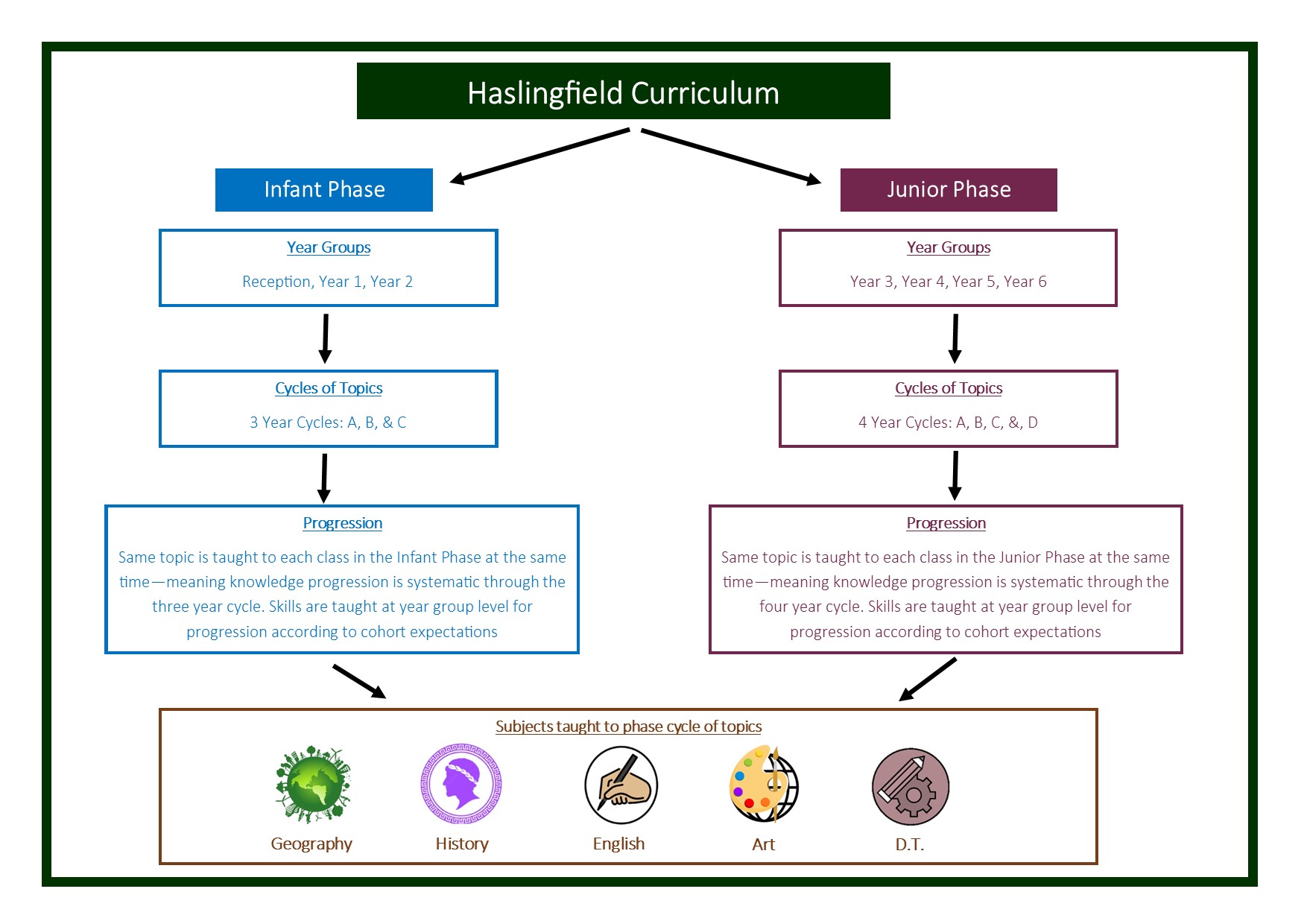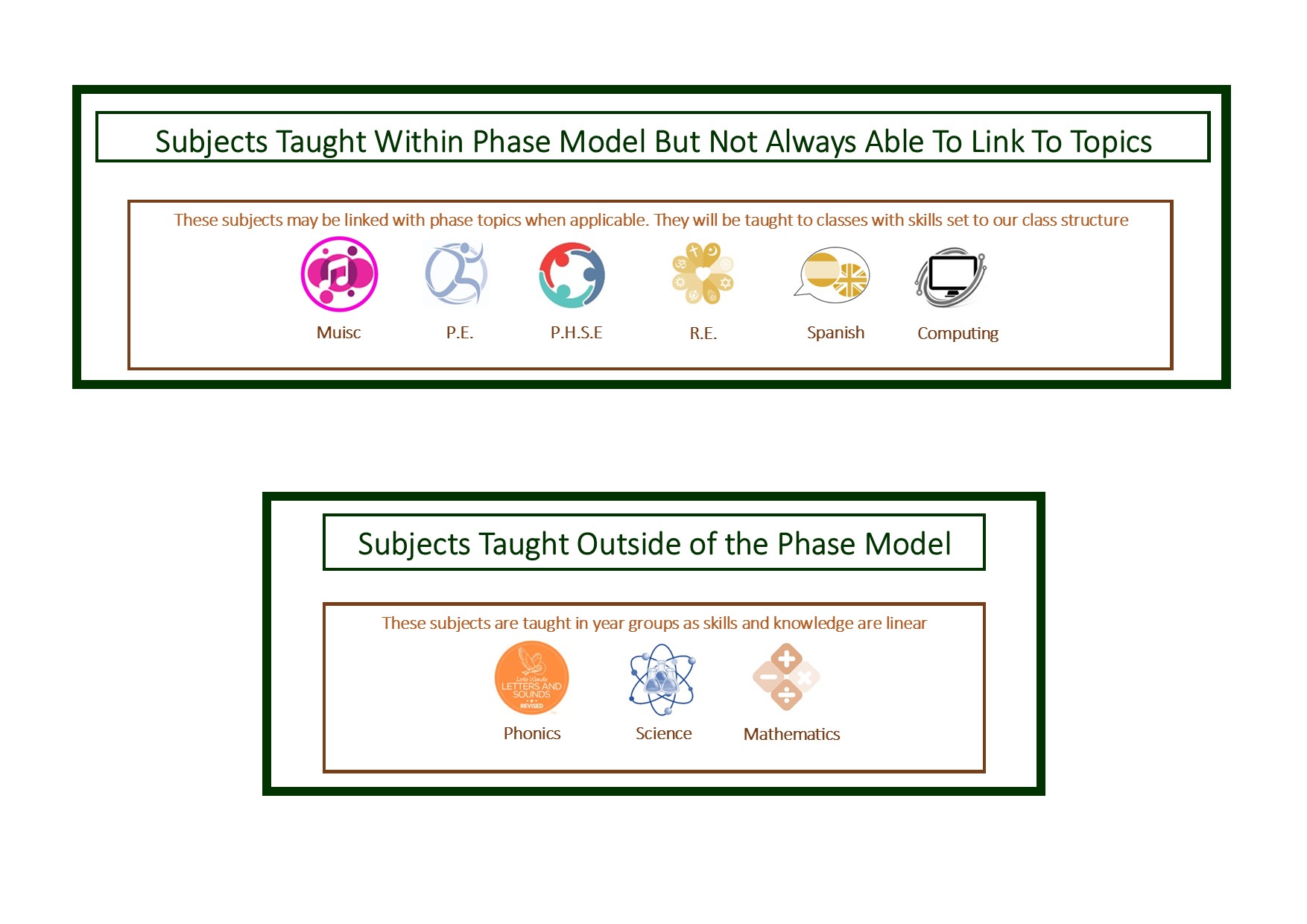Please click here to find out more about the intent, implementation and impact statements for each individual subject of our curriculum.
A curriculum with our school and our children at the centre:
Our new school curriculum (launched September 2023) has been specifically designed and tailored by our team with Haslingfield Primary's children and mixed-aged groups classes in mind. We are a small school, but with big ambitions and we wanted a curriculum that enables children to thrive and develop a love for learning.
Our aims for this are:
1) To provide a curriculum that meets the needs of our children and the specific class structure of our school
2) For a curriculum to offer all children opportunities to develop secure knowledge in all subjects
3) To enable children to progress the skills they need in each subject, acording to year group progression
4) A curriculum that not only meets the requirements of the National Curriculum, but one that supports children's deeper understanding of important themes of the 21st Century world they live in and the impact on their local area.
5) To offer opportunities of collaboration between classes, to support enrichment opportunities, and children's feeling of community.
Our curriculum design
To meet the above aims, we have designed the below model.

